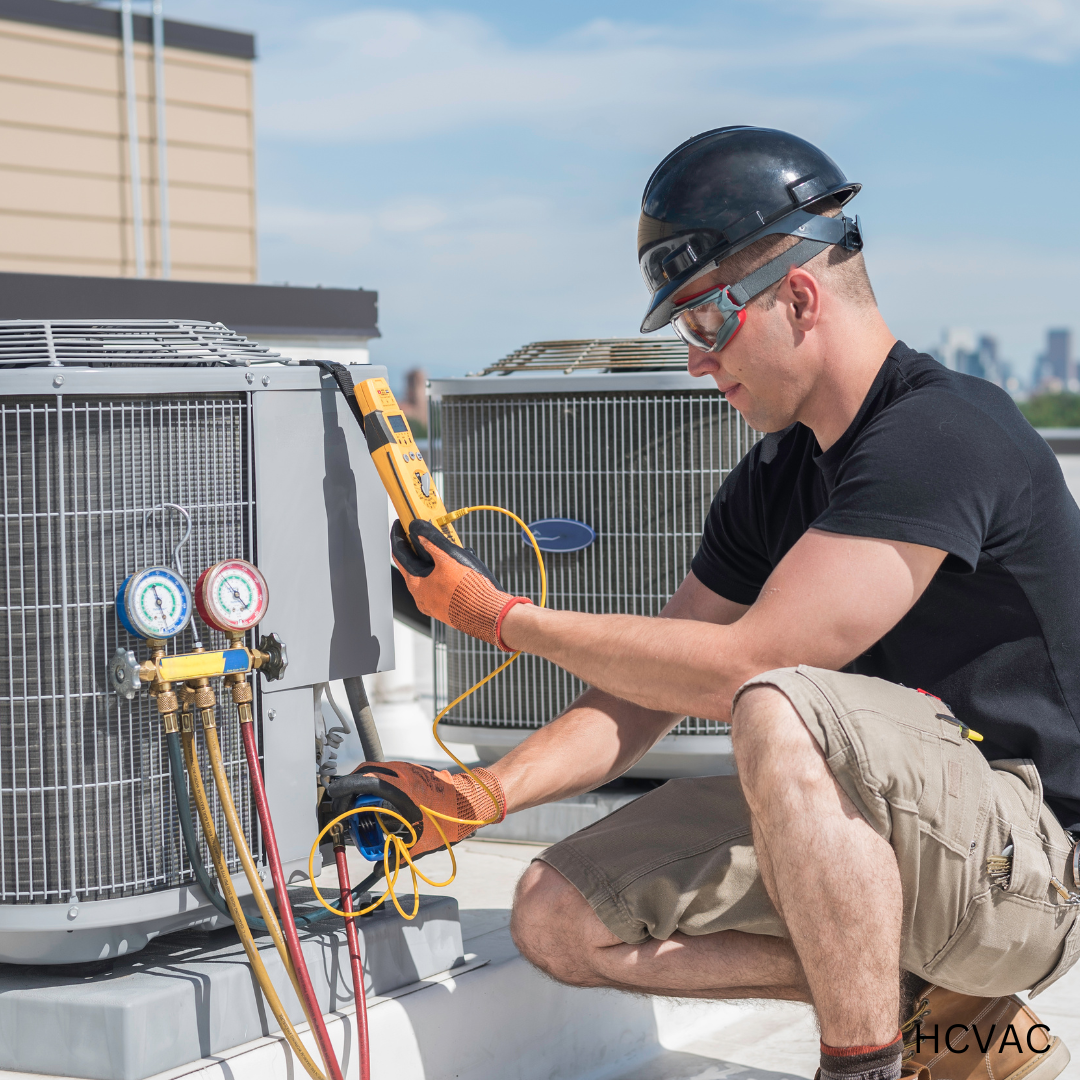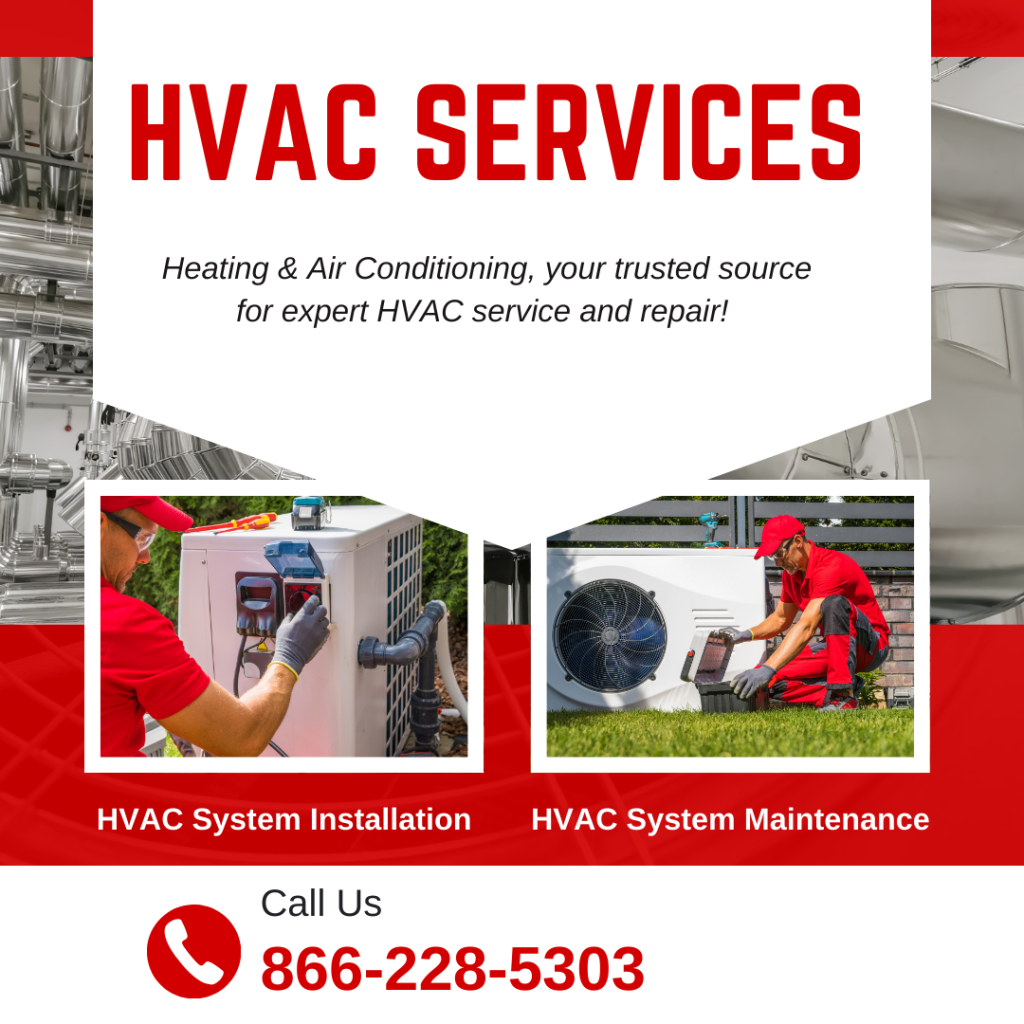What is the full meaning of HVAC?

HVAC
What is the full meaning of HVAC?
An effective HVAC system is crucial for keeping your home safe and comfortable during hot summer or cold winter nights. Those who have experienced this phenomenon are well-informed. To maintain a comfortable and healthy lifestyle year-round, HVAC (Heating, Ventilation, and Air Conditioning) systems are crucial. This comprehensive guide covers everything from installing and maintaining HVAC systems to upgrading or repairing them.
What’s HVAC?
HVAC means Heating, Ventilation, and Air Conditioning….. These three systems work together to keep your home or business comfortable, healthy and energy-efficient. Each component is outlined below: 1.

An HVAC system’s heating system keeps the interior warm during the cold months. Gas, electricity or oil-fired boilers (thermal systems), heat pumps and furnaces are all examples of this. How? .
The process of ventilation involves exchanging fresh outdoor air to improve the indoor air quality. The process of removing moisture, odors, smoke, heat, dust, airborne bacteria, and carbon dioxide is achieved by replenishing oxygen levels.
The use of air conditioning to cool indoors during the summer or warm climates is possible. Your home is cooled with cool, conditioned air through the use of cooling air conditioners that remove heat from the air.
Your HVAC system’s success in ensuring your home is comfortable can also contribute to energy efficiency, which can help reduce utility expenses. Why? The optimal functioning of your HVAC system can be achieved through regular maintenance and prompt repairs.
Why is HVAC Important?
HVAC systems not only help maintain the comfort level in your home. Several reasons justify the need for HVAC systems in your home or office: 1.
Keeping your home comfortable, even when the sun is out, is the main objective of an HVAC system. It offers a cool climate in the summer and provides warmth in winter.
HVAC systems are effective in preserving good indoor air quality by filtering out dust, pollutants, and allergens.a) They distribute filtered air, which can be used to alleviate the risk of allergies and asthma and other respiratory illnesses.)
Modern HVAC systems are engineered to be efficient in terms of energy consumption. By maintaining proper temperature and airflow, these systems help to reduce unnecessary energy consumption, which in turn helps to lower energy bills.
Health benefits: The use of HVAC systems control your home’s humidity levels and remove harmful particles. Why? Good ventilation helps to reduce moisture buildup in indoor areas, and it also prevents mold from developing.
Types of HVAC Systems.
The selection of HVAC system types is based on your requirements, the space you want to work in, and your financial situation. Listed below are the prevalent sorts of HVAC systems:
- Central HVAC System.
Residential homes are typically equipped with central HVAC systems (CVA). The system relies on a central furnace or air handler to heat and cool the air, which is then distributed through ducts in your home. This ensures a uniform temperature throughout the home.
The usual method of heating involves using a gas or electric furnace.
Using a central air conditioning unit to cool the air.
Air circulation in your home is achieved through the use of a network of conduits.
- Ductless HVAC System (Mini-Split)
For homes without existing ducts or areas needing local temperature regulation, a ductedless HVAC system is the way to go. An outdoor compressor unit and one or more indoor air-handling units are included in this system. It has the ability to heat or cool specific areas of the house.
Wall or ceiling mounted air handlers for heating and cooling.
Zero duct work: Great for new construction, smaller areas, or homes without any existing conduits.
- Heat Pump System.
Heat is not generated by a heat pump system, but rather transferred or mobilized to generate heat. The device draws in heat from the outside during winter and distributes it to your home, but by summer, it acts as a cooling mechanism and eliminates heat. Energy-efficient heat pumps are systems that can be used for both heating and cooling.
Up to four times more energy efficient than traditional heating and cooling systems.
Providing both heating and cooling with one unit, year after year.
- Hybrid HVAC System.
The use of hybrid systems involves the integration of an electric heat pump and a conventional furnace. The system can automatically switch between using the heat pump for heating and the furnace for backup heat, depending on the temperature outside.
Can be used in any weather and is efficient: Employs the most energy-saving option.
- Packaged HVAC System.
HVAC is a unit that includes heating, cooling, and ventilation components in arranged form, typically found on the roof or outside the building. It’s well-suited for smaller homes or commercial areas with limited indoor space.
This is a compact and efficient unit, ideal for properties with limited indoor space.
How to take care of your HVAC system? Read More.
Maintaining your HVAC system can help you extend its lifespan, enhance its efficiency, and maintain its performance over time. These tips are crucial for maintaining your HVAC system:
Maintaining a regular air filter can help the system work more efficiently and reduce energy costs by reducing airflow through dirty filters. Change the filters every 1-3 months, depending on usage and type.
The evaporator coils and condenser coil can become dirty over time, leading to system failure and overheating. What are the best methods for keeping these areas clean? Maintain the coils’ effectiveness by recleaning them annually.-.
Verify that your thermostat is operating and calibrated appropriately.. If you have a programmable thermostat, it can automatically adjust the temperature according to your schedule.
Check the Ductwork: Dirty ducts can make your HVAC system work harder and consume more energy. Why? Identify any gaps or cracks in ductwork.
Get your HVAC system serviced annually with professional inspections. The system can be inspected by a qualified technician, who can then perform maintenance tasks and provide necessary repairs.
Symptoms of HVAC system failure or inefficiency?
Over time, your HVAC system may fail despite being maintained regularly. Why? The following are some indications that a repair or replacement is necessary:
Defective air distribution in your HVAC system may be the cause of unreliable temperature fluctuations in specific areas.
Unusual Sounds: If you have a system that produces loud or unusual sounds such as grinding, squealing, or rattling from the air intake, it could be an issue with the blower, motor, and compressor.
Unexpectedly high energy bills can indicate a malfunction in your HVAC system.
Requirements for Regular Repairs: It is more cost-effective to replace your system with a new, energy-saving model if necessary.
If your system is older than 10-15 years, consider upgrading to a newer and more efficient model as you age.
Conclusion.
A healthy home’s HVAC system is crucial to its overall health and comfort. Understanding the workings of your HVAC system and how to maintain it is crucial in ensuring that your home’s performance and longevity remain intact, regardless of whether you need heating or air conditioning services. By taking preventative measures such as regular maintenance, timely repairs, and selecting the appropriate HVAC system for your home, you can save money while maintaining consistent comfort levels throughout the year.
